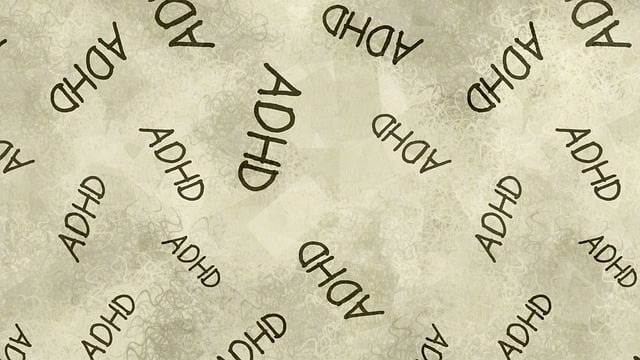Cultural and linguistic barriers impede accurate mental illness diagnoses, prompting Longmont Hebrew Speaking Therapy (LHST) to advocate for change. LHST's research highlights these challenges, emphasizing the need for healthcare provider training in cultural competency. They promote evidence-based assessment tools and comprehensive strategies that include advanced training, community outreach, and support programs. Through workshops, support groups, and public education, LHST breaks down stigma and empowers individuals to seek help early on, ultimately enhancing diagnosis accuracy and improving treatment outcomes.
Mental illness diagnosis accuracy has long been a topic of concern, with cultural and linguistic barriers posing significant challenges. This article explores targeted efforts to improve diagnostic accuracy, focusing on understanding and overcoming these barriers. We delve into key strategies such as implementing evidence-based assessment tools, enhancing clinical training and supervision, and promoting community awareness and support systems, highlighted by the success of Longmont Hebrew Speaking Therapy in addressing diverse cultural needs.
- Understanding Cultural and Linguistic Barriers to Diagnosis
- Implementing Evidence-Based Assessment Tools
- Enhancing Clinical Training and Supervision
- Promoting Community Awareness and Support Systems
Understanding Cultural and Linguistic Barriers to Diagnosis

Cultural and linguistic barriers often pose significant challenges to accurate mental illness diagnosis. Many individuals from diverse cultural backgrounds may face difficulties in expressing their symptoms or understanding the nature of their emotional distress due to differences in communication styles, beliefs, and access to healthcare services that cater to their specific needs. For instance, a study by Longmont Hebrew Speaking Therapy highlighted how language barriers can lead to misdiagnoses among Hebrew-speaking patients, emphasizing the need for culturally sensitive approaches.
Addressing these barriers requires both Healthcare Provider Cultural Competency Training and Public Awareness Campaigns Development. Training healthcare providers in cultural competency ensures that they are equipped to communicate effectively with patients from various backgrounds, tailoring their assessment methods accordingly. Public awareness campaigns play a crucial role in educating communities about mental health signs and symptoms, fostering an environment where individuals feel comfortable seeking help without fear of stigma or misjudgment. By integrating these efforts, we move closer to ensuring equitable access to accurate diagnoses and, subsequently, effective emotional healing processes for all.
Implementing Evidence-Based Assessment Tools

Implementing Evidence-Based Assessment Tools is a pivotal strategy to enhance mental illness diagnosis accuracy at institutions like Longmont Hebrew Speaking Therapy. These tools, grounded in rigorous research and validated over time, offer a more nuanced understanding of patients’ symptoms, contextual factors, and psychological states. By adopting such methods, mental health professionals can move beyond superficial assessments and delve into the complexities of each individual’s experience.
This shift towards evidence-based practices not only improves diagnostic accuracy but also fosters more personalized treatment plans. It empowers therapists to identify subtle signs of distress or emerging conditions, enabling them to intervene earlier and provide targeted support. For instance, integrating risk management planning techniques within these assessments can help professionals anticipate potential crises and develop proactive strategies for anxiety relief—a common concern many patients seek assistance for.
Enhancing Clinical Training and Supervision

Improving mental illness diagnosis accuracy requires a multifaceted approach, and one key area is enhancing clinical training and supervision. At institutions like Longmont Hebrew Speaking Therapy, this involves providing ongoing education for therapists on the latest diagnostic criteria, therapeutic techniques, and cultural competencies. By fostering an environment where professionals can regularly collaborate, supervise, and receive feedback from peers and seasoned experts, the quality of care is significantly elevated. This enhanced training not only equips therapists with advanced skills but also ensures they stay updated with the evolving landscape of mental health treatment.
Community outreach programs play a crucial role in this process, as they facilitate better access to services for diverse populations. Implementing such programs can increase awareness about mental health, promote early intervention, and provide valuable coping skills development resources. This holistic approach, combining advanced training, community engagement, and tailored support like Self-Care Routine Development for Better Mental Health, collectively contributes to more accurate diagnoses and effective treatment plans, ultimately benefiting individuals in need.
Promoting Community Awareness and Support Systems

Mental illness diagnosis accuracy can be significantly enhanced by fostering a supportive community environment. Education and awareness programs play a pivotal role in this process. Initiatives like those offered by Longmont Hebrew Speaking Therapy are instrumental in breaking down stigma and promoting understanding. By organizing workshops, support groups, and public talks, these organizations help individuals recognize the signs of mental health issues early on. Educating the community about various conditions, available treatment options, and coping strategies empowers them to offer effective support to those in need.
Building strong support systems is crucial for improving diagnosis accuracy. Encouraging open conversations about mental health fosters an environment where people feel comfortable seeking help without fear of judgment. Moreover, promoting self-care practices, burnout prevention techniques, and coping skills development can empower individuals to manage their well-being proactively. These efforts collectively contribute to a more accurate and compassionate approach to mental illness diagnosis and treatment.
Mental health diagnosis accuracy can be significantly enhanced by addressing cultural and linguistic barriers, adopting evidence-based assessment tools, improving clinical training, and fostering community support. By implementing these strategies, such as those practiced at Longmont Hebrew Speaking Therapy, we can ensure more accurate and culturally sensitive diagnoses, ultimately leading to better patient outcomes and a more inclusive mental health care system.














